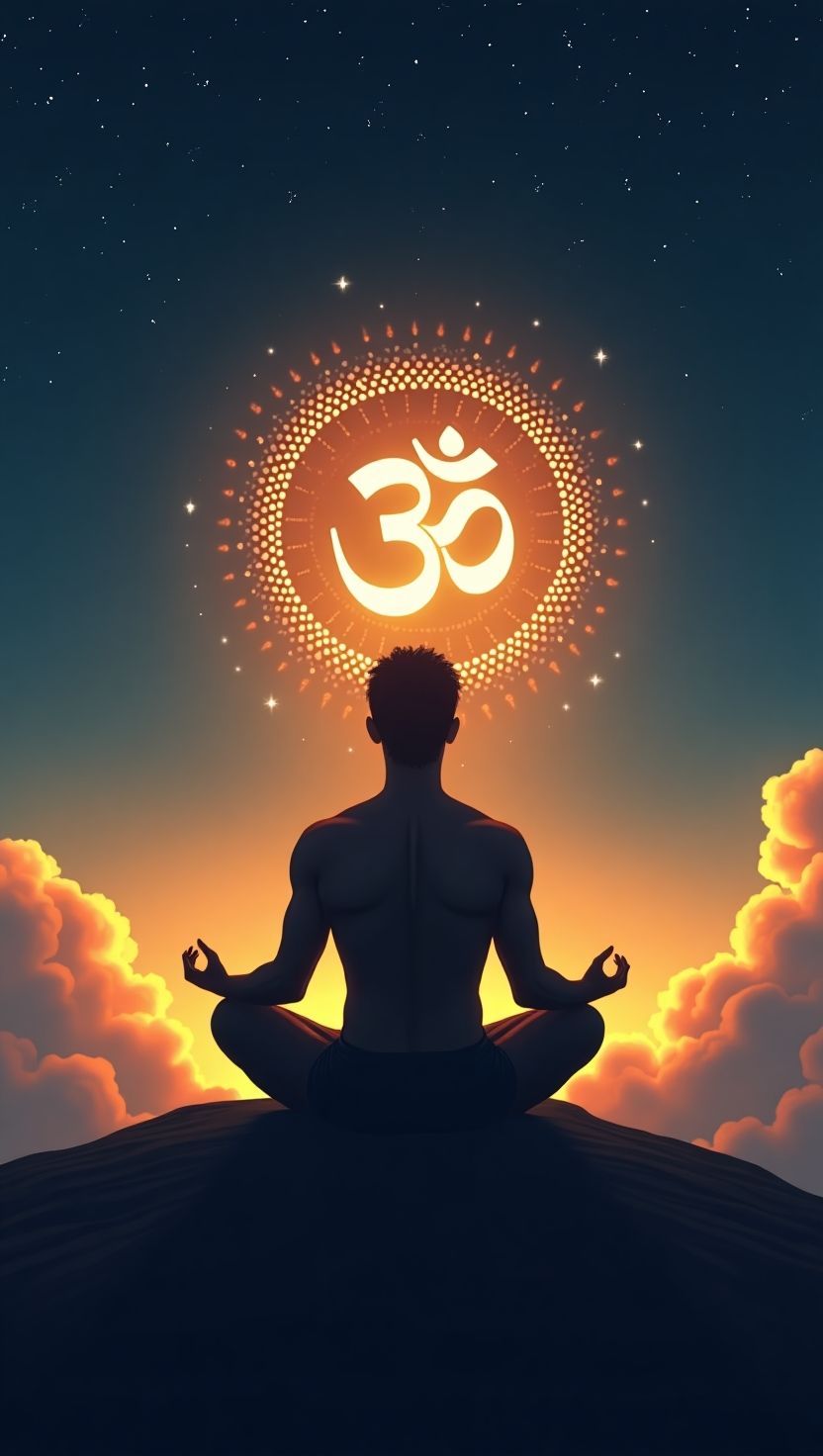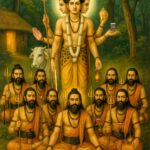10 Powerful Mantras in India That Will Transform Your Life
India, known as the land of spirituality, has been the birthplace of sacred mantras, which are powerful tools for mental, emotional, and spiritual well-being. A mantra is more than just words; it is a vibration, sound, or phrase that helps focus the mind, connect with divine energy, and achieve inner peace. This article explores the history, fascinating facts, timeline, significance, FAQs, impact on daily life, and societal importance of Mantras, written in a human-friendly and inspirational tone.
History of Mantras
Vedic Origins: Mantras originate from the Vedas (1500–500 BCE), the oldest sacred texts of India, used for spiritual rituals, meditation, and invoking divine energies.
Epic Era: Mantras are referenced in Ramayana and Mahabharata, used by sages and warriors for protection, focus, and spiritual strength.
Puranic Period: Hindu texts like the Puranas elaborate on the uses, types, and benefits of mantras.
Medieval Era: Saints and Gurus used mantras for healing, devotion, and meditation practices.
Modern Era: Mantras are now widely practiced in yoga, meditation, stress relief, and spiritual growth across the world.
Interesting Facts About Mantras
Meaning of Mantra: Derived from Sanskrit, “man” means mind, and “tra” means tool or instrument, making a mantra a tool for the mind.
Types of Mantras:
Beej Mantras: Seed syllables like Om, Shreem, Hreem that carry vibrational energy.
Gayatri Mantra: One of the most powerful Vedic mantras for wisdom and enlightenment.
Maha Mrityunjaya Mantra: For protection, health, and overcoming fears.
Hanuman Chalisa and other devotional mantras invoke divine grace.
Scientific Benefits: Mantras calm the nervous system, improve concentration, and reduce stress.
Daily Practice: Chanting mantras regularly improves mental clarity, spiritual growth, and emotional stability.
Global Influence: Mantras are now integral to modern meditation, yoga practices, and wellness retreats.
Vibrational Power: Repeating mantras aligns your energy, mind, and soul.
Cultural Significance: Mantras are used in rituals, pujas, festivals, and spiritual ceremonies.
Language and Pronunciation: Correct pronunciation enhances the effectiveness and vibrational power of mantras.
Healing Properties: Mantras can promote mental, emotional, and physical well-being when practiced sincerely.
Spiritual Awakening: Regular chanting opens awareness, intuition, and divine connection.
Timeline of Mantras in India
Vedic Period (1500–500 BCE): Mantras used in sacrificial rituals, meditation, and spiritual learning.
Epic Period (500 BCE–500 CE): Mantras used by sages for guidance, protection, and knowledge.
Medieval Period (500–1500 CE): Saints spread mantras for devotion, healing, and meditation.
Colonial Period (1500–1947): Gurus preserved mantra traditions amid societal changes.
Modern Era (1947–Present): Mantras are widely used globally for meditation, yoga, mindfulness, and spiritual wellness.
Significance of Mantras
Spiritual Significance: Mantras connect individuals with divine energy, enhance meditation, and promote enlightenment.
Mental Health: Regular chanting improves focus, reduces anxiety, and balances emotions.
Physical Health: Vibrational energy may boost immunity and promote relaxation.
Cultural Preservation: Mantras help preserve ancient Sanskrit texts, rituals, and spiritual heritage.
Daily Life Impact: Encourages mindfulness, positive thinking, and ethical behavior.
Societal Importance: Mantras are used in ceremonies, healing practices, and community rituals, promoting harmony and shared spiritual values.
FAQs About Mantras
Q1: What is a mantra?
A1: A mantra is a sacred sound, phrase, or word repeated for spiritual, mental, or emotional benefit.
Q2: Can anyone chant mantras?
A2: Yes, anyone can chant mantras, but guidance from a Guru or teacher enhances effectiveness.
Q3: How often should I chant a mantra?
A3: Daily repetition is recommended, commonly 108 times using a mala (prayer beads) for maximum effect.
Q4: Do mantras have scientific benefits?
A4: Yes, research shows that mantras reduce stress, improve focus, and promote mental well-being.
Q5: Are mantras religious?
A5: While rooted in Hinduism, mantras are universal tools for meditation, mental clarity, and spiritual growth.
Impact on Daily Life
Mindfulness: Mantras promote focus, concentration, and inner awareness.
Stress Reduction: Chanting calms the mind and nervous system.
Positive Energy: Repetition generates mental, emotional, and spiritual positivity.
Ethical Living: Encourages reflection, compassion, and self-discipline.
Personal Transformation: Improves confidence, resilience, and spiritual growth.
Observance and Wishing
Daily Chanting: Incorporate mantras into morning rituals or meditation sessions.
Festivals and Ceremonies: Used in Navaratri, Diwali, Maha Shivratri, and pujas.
Wishing: Seek blessings for health, wisdom, protection, and spiritual progress.
Retreats and Workshops: Many ashrams and spiritual centers teach mantra chanting for personal growth.
Conclusion: Why Mantras Matter
Mantras are timeless tools for spiritual, mental, and emotional well-being. They have been an integral part of Indian culture for centuries, helping millions achieve inner peace, focus, and divine connection.
In daily life, mantras promote mindfulness, resilience, ethical living, and emotional balance. For society, they preserve ancient spiritual traditions, rituals, and communal harmony. With consistent practice, mantras can truly transform lives, uplift the soul, and foster holistic well-being.
Quick Recap: 10 Powerful Facts About Mantras
Connect mind, body, and spirit.
Originated in Vedic times.
Beej Mantras carry vibrational energy.
Gayatri and Maha Mrityunjaya Mantras are most revered.
Improve mental clarity and emotional stability.
Used in rituals, pujas, and festivals.
Promote healing and wellness.
Guide spiritual awakening.
Preserved across centuries.
Attract global followers and practitioners.
Mantras
Mantra – The Word
The word “Mantra” has been derived from Sanskrit. Mantra contains two words – “man” which means “to think” (also in manas “mind”) and suffix “tra” which means “tool”, hence a literal translation would be “instrument of thought”. A mantra is a powerful word or phrase that may or may not have meaning in the same way as a sentence.
What is Mantra?
Mantras are single or strung together syllables. It is important to pronounce the mantra properly with an understanding of its meaning. Improper pronunciation of Mantra can inflict losses. So, one should be careful while chanting mantra.
Mantras are energy-based sounds. The Indian metaphysical tradition explains that the body is composed of the combination of five elements and the first of them is sound. Studies in sound symbolism suggest that vocal sounds have meaning whether we are aware of it or not. And certainly there can be multiple layers of symbolism associated with each sound. So even, if we do not understand them, mantras are not meaningless; no vocal utterance is entirely without meaning.
One’s subconscious mind can find its solution through meditation and recitation of mantras. A mantra, when repeated constantly during meditation, first loudly and then through silent and mental chanting, changes the consciousness.
The Basic Mantra – Aum
In Hindu Mythology, the most basic mantra is Aum, which is known as the “pranava mantra”, the source of all mantras. Aum is regarded to be the most fundamental and powerful mantra. Aum represents the first manifestation of Brahman, the Supreme reality. Thus, Aum is prefixed and suffixed to all Hindu prayers.
Verses (Sloka) from holy Hindu texts like the Vedas, Upanishads, Bhagavad-Gita, Mahabharata , Ramayana, Durga Saptashati or Chandi are considered powerful enough to be repeated to great effect, and therefore have attained the status of a mantra. As per the Vedic practices, most ancient techniques and classical Hinduism, mantra is symbolized as a requisite for spiritual advancement and high attainment.
Brahma Mantra
Lord Brahma is the originator and the generator of the mankind. Brahma represents the universal mind, as creation is the work of the mind and the intellect. Lord Brahma is considered as the “Brahm”, the Supreme God.
Dhanwantari Mantra
Lord Dhanwantari is regarded as the god of ayurvedic medicine (Ayurveda) in the Hindu religion. People pray to Dhanvantari, asking him for improved or good health for themselves and for others. Dhanvantri Mantra forms the part of prayers offered to the lord. Mantra of Dhanwantari with its meaning is as follows:
Durga Mantra
Durga (Shakti / Devi) is one of the most popular goddesses among the Hindu people. Devi represents strength, morality, power and protection. Goddess Durga is the divine mother, who protects people from evil forces of selfishness, jealousy, hatred, anger and ego.
Ganesh Mantra
Lord Ganesha is the lord of beginnings, as per the Hindu mythology. Shri Ganesh is the remover of obstacles. Hindu God Ganesha represents wisdom, intellect and knowledge. God Ganesha is the most worshipped God of the Hindu religion. People worship Ganesha before starting any work to ensure hassle-free work.
Hanuman Mantra
Lord Hanuman is considered to be an incarnation of Lord Shiva. Shri Hanuman is the epitome of sincere devotion and dedication, being a great disciple of Lord Rama. Sri Hanuman is a celibate god, who represents strength, divinity, courage and devotion.
Hare Krishna Mantra
Hare Krishna Mantra is considered as the mahamantra (Ultimate prayer) of Kaliyuga (The Dark Age). Kaliyuga refers to the present era of machine, where truth and morality are at their lowest level.
Kali Mantra
Maha Kali is the fiercest form of Shakti or Durga, in the Hindu religion. Goddess Kali is the destroyer of evil. But Kali is also a compassionate mother who loves her sincere children. Kali is usually worshipped by tantriks to achieve “siddhis”. Kali is the slayer of ego as well. Maha Kali Mantra forms part of the prayers offered to the goddess.
Krishna Mantra
Lord Krishna is one of the most popular and worshipped deities of the Hindu religion. Krishna represents strength, beauty, knowledge and opulence. Shri Krishna is the very embodiment of love and divine ecstasy that destroys all pain and offense. Shri Krishna Mantra forms the part of prayers offered to the lord.
Kuber Mantra
Kuber is regarded as the god of wealth, in Hindu mythology. Lord Kubera is also known as the god of yakshas (savage beings). Kubera is always remembered with the goddess of fortune, Lakshmi.
Lakshmi Mantra
Lakshmi is the goddess of wealth, luxury, beauty, power, generosity and auspiciousness. Maha Lakshmi is claimed to fulfill the promises of material, wealth and contentment. Goddess Lakshmi represents fortune, purity, courage and fertility. Maha Lakshmi Mantra forms the part of prayers offered to the lord.
Mantra Power
Mantras are powerful sounds and when chanted with devotion produce enormous effects. Mantras are well-off in their meanings and their meaning can be meditated while chanting. As the mind concentrates more and more on mantra and its meaning, it conditions the mind and takes up to the higher states
Mantra Chanting
Chanting of mantra was a concept of the Vedic saints that includes mantras as one of the main forms of worship, whose end is seen as salvation. Basically, Mantra Jaap means repeating the mantra. Reciting Mantra has become an established feature of the Hindu practices.
Maha Mrityunjaya Mantra
Mahamrityunjaya Mantra is a great mantra dedicated to Lord Shiva. It is called Maha Mritunjaya Mantra because it is a great death-conquering mantra. Sometimes it is also known as Mrita-Sanjivani Mantra. The Maha Mrityunjaya mantra is hailed by the sages as the heart of the Veda.
Ram Mantra
Lord Ram (Rama) is regarded as the seventh incarnation of Lord Vishnu. Rama is the symbol of courtesy and virtue, a man of values and morals. Hindu God Ram is also known as Maryada Purushottama, which means the perfect man. Sri Ram is an example of idealism; he has been the ideal man, the ideal son, the ideal brother
Saraswati Mantra
Saraswati is the goddess of arts, music, knowledge, and wisdom in the Hindu religion. Goddess Sarasvati is said to possess the powers of speech, wisdom and learning. Sarsvati is regarded as the dispeller of chaos and confusion. Saraswati Mantra is an important mantra of the Hindus that is recited for higher knowledge
Shanti Mantras
The Shanti Mantras are prayers for peace, in the Hindu Mythology. Shanti Mantras are also known as “Peace Mantras”. Shanti Mantras form the part of Upanishads.
Shiva Mantra
Lord Shiva or Siva is considered as the destroyer of the world. Shiv is one of the most popular Gods of the Hindu religion. Shiva is one of the complex gods who is rudra as well as kind-hearted, simultaneously.
Surya Namaskar Mantra
Surya Namaskar (Sun Salutation) is a form of worshiping God by meditating on the Sun, the energy provider. Surya Namaskar is useful in achieving concentration. Surya Namaskara is always performed in the open air, facing the Sun, at sunrise. Surya Namaskar is not just a physical exercise.
Vishnu Mantra
Lord Vishnu is considered as the preserver of the universe as per the Hindu Mythology. It is believed that Vishnu is an eternal and universal spirit associated with the primeval waters that pervaded before the creation of the universe. Vishnu Mantra forms the part of prayers offered to the lord.









Thanks for every other informative website. Where else may I am getting that kind of info written in such an ideal method? I’ve a challenge that I’m simply now working on, and I have been at the look out for such information.